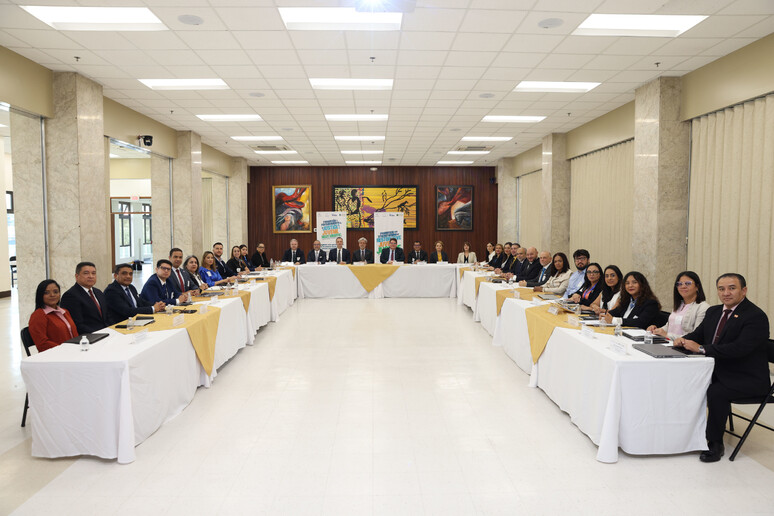The first regional meeting on Restorative Juvenile Justice was held in San José, Costa Rica, on 18, 19 and 20 February 2025, an initiative to strengthen juvenile justice systems in Central America, organised as part of the project 'Promotion and Strengthening of Restorative Juvenile Justice in Sica Member Countries' financed by the Ministry of Foreign Affairs through the Italian Agency for Development Cooperation, and implemented by the International Italo-Latin American Organisation (Iila) in coordination with the General Secretariat of the Central American Integration System (Sg-Sica).
The event was attended by international and regional experts, with the participation of delegations from Guatemala, El Salvador, Honduras, Costa Rica, Panama, the Dominican Republic and Belize (the latter remotely), who shared knowledge and good practices for the construction of a restorative juvenile justice model adapted to the Central American reality.
Among those present were also the Deputy Minister of Justice of Costa Rica, Juan Carlos Aguero, the Deputy Minister of Security of the Dominican Republic, Edwin Brito, as well as numerous sectoral authorities of the Costa Rican justice system.
Italy's strong commitment to this issue was reaffirmed by the Italian Ambassador to San José, Alberto Colella, who attended the opening day of the event. Paolo Gallizioli, Director of the AICS Headquarters in San Salvador, with regional responsibility for Central America and the Caribbean, also emphasised the determination to strengthen strategies to prevent and fight crime. Also present at the event was Gianluca Guida, Director of the Juvenile Penal Institute of Nisida (Naples), who gave a lecture on the exchange of experiences and best practices between the Italian and Central American juvenile justice systems coordinated by Sica.
One of the most significant outcomes of the meeting was the creation of the Regional Table for Juvenile Justice, a working group composed of representatives of national working tables, which will ensure the continuity of regional efforts. This new coordination space represents a decisive step towards the integration and modernisation of juvenile justice systems in Central America, promoting a common and coordinated vision to address the challenges of the sector. Another key aspect of the event was the exchange of national experiences. Each country presented not only the current state of their systems, but also the innovative initiatives developed in the field of restorative justice.
Afterwards, through a participatory dialogue, the representatives of the delegations worked on the identification of key elements for the construction of a regional restorative justice model. Through this first meeting, Sica member countries made concrete commitments and contributed to the transfer of restorative methodologies, thus laying the foundations for a paradigm shift in the approach to the treatment of adolescents in conflict with the law in the region. This event not only marks a before and after in Central American juvenile justice, but also sets an international precedent in the promotion of restorative models. Its impact promotes the effective reintegration of young people and contributes to the building of more just, inclusive and equitable societies.
ALL RIGHTS RESERVED © Copyright ANSA











